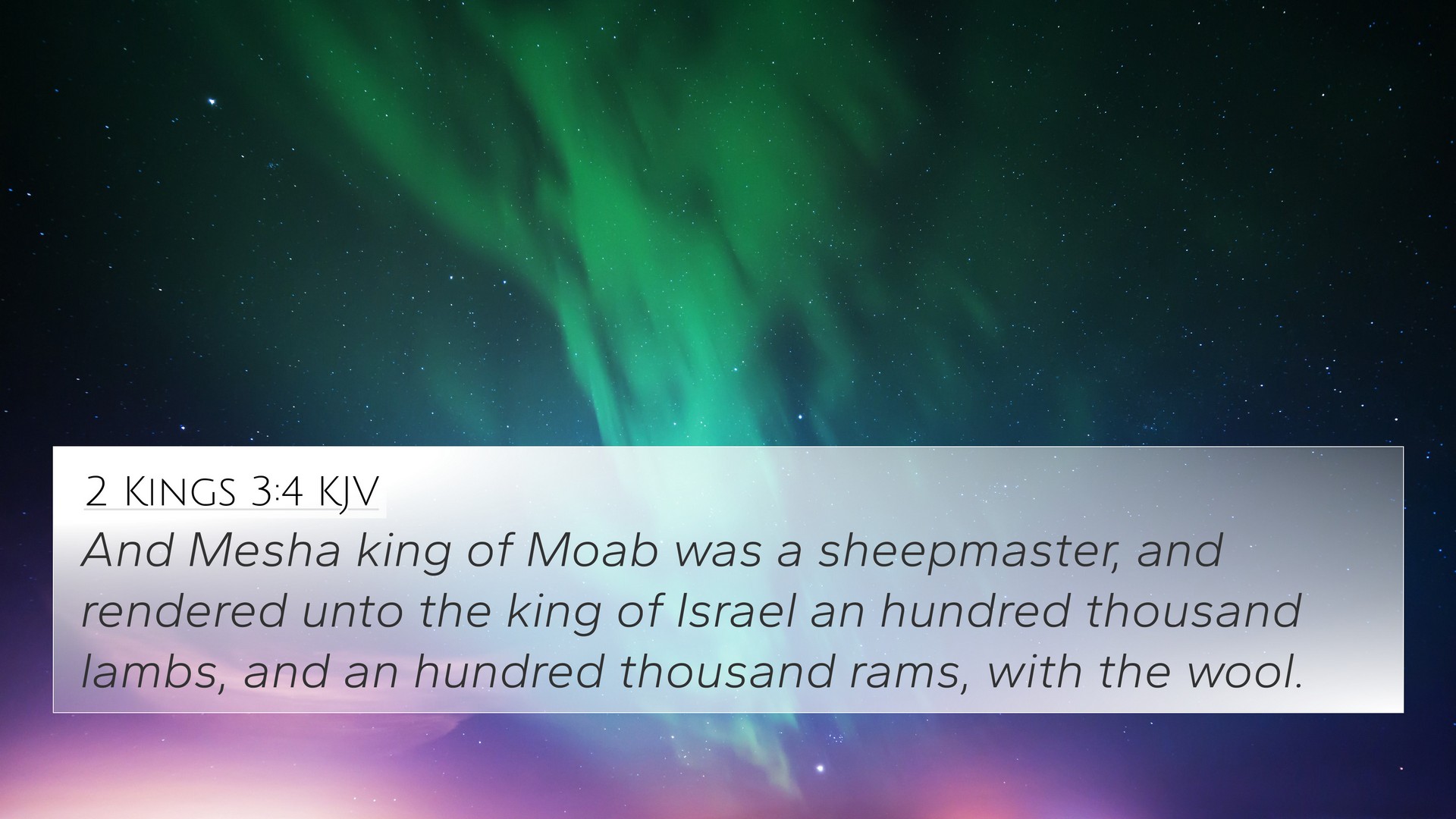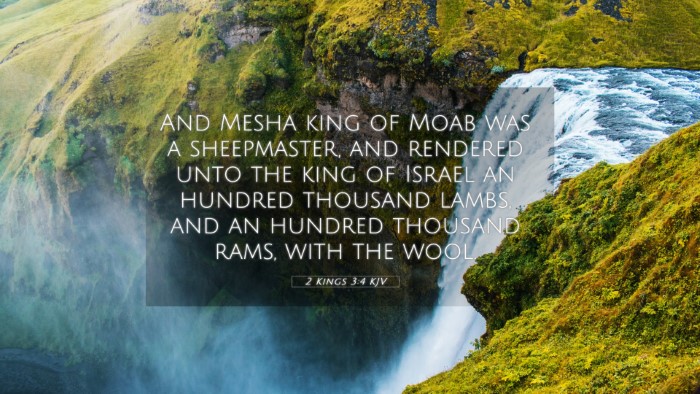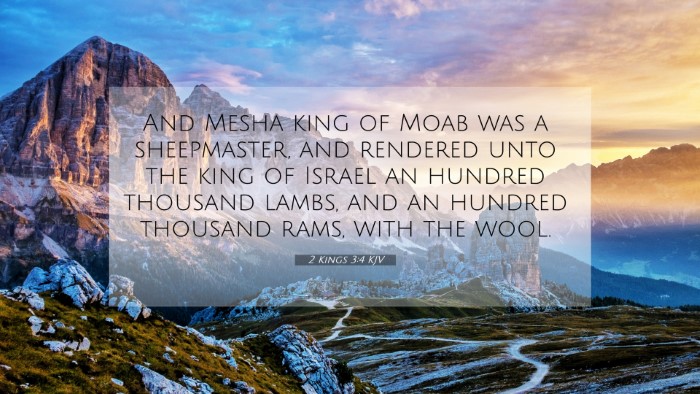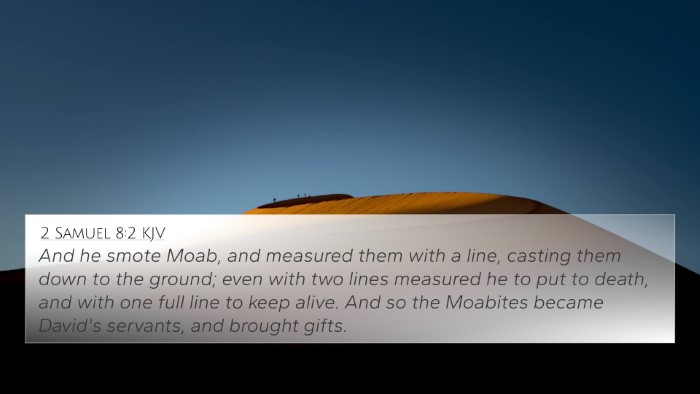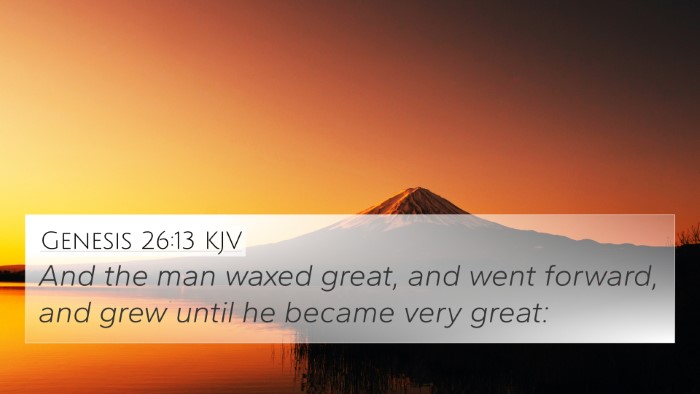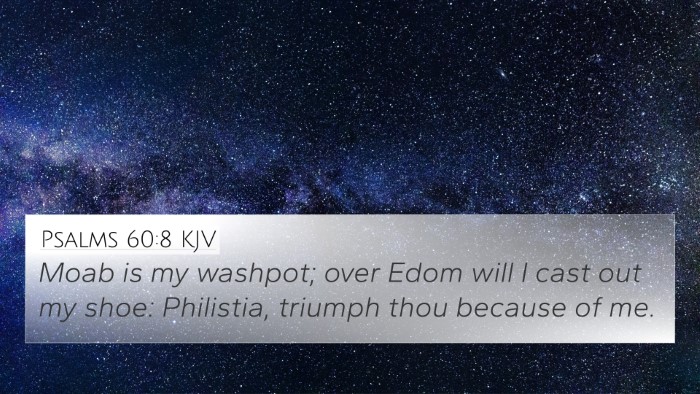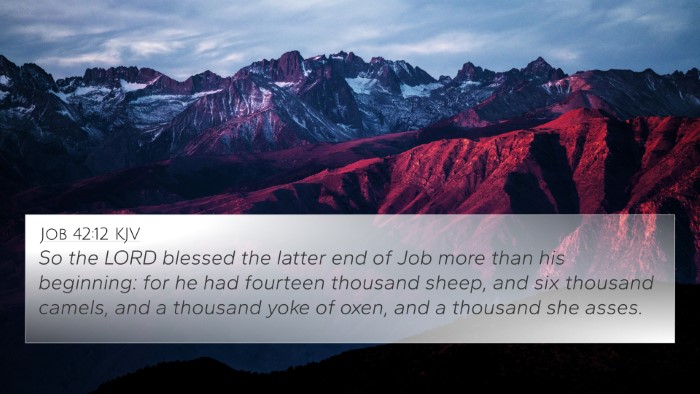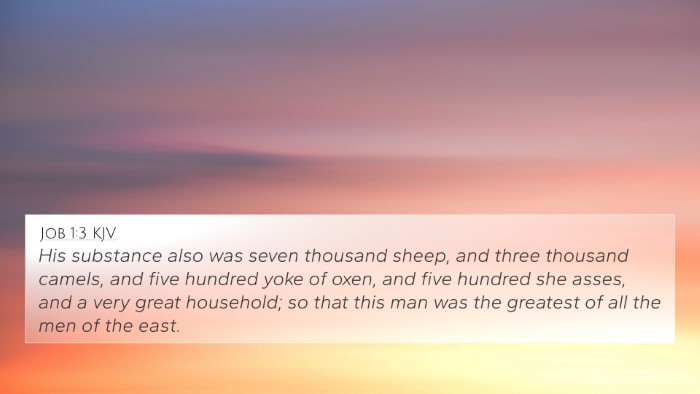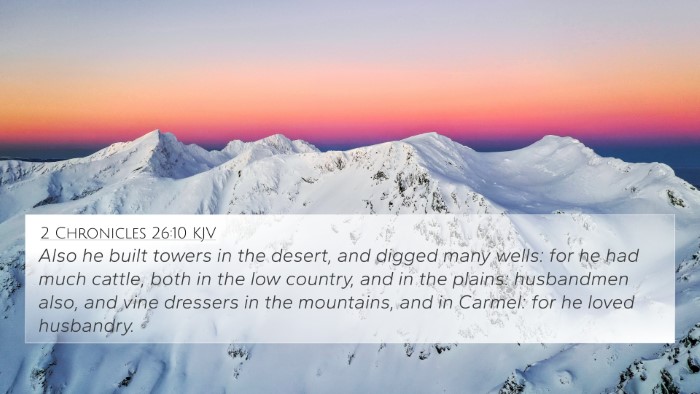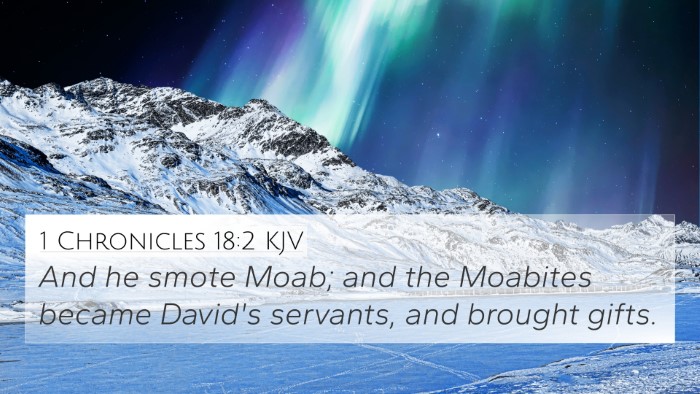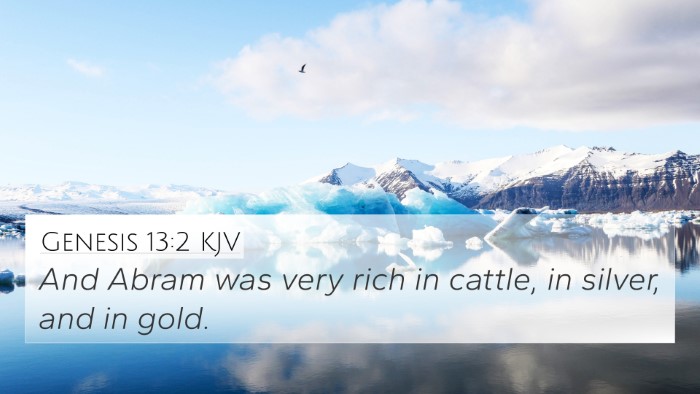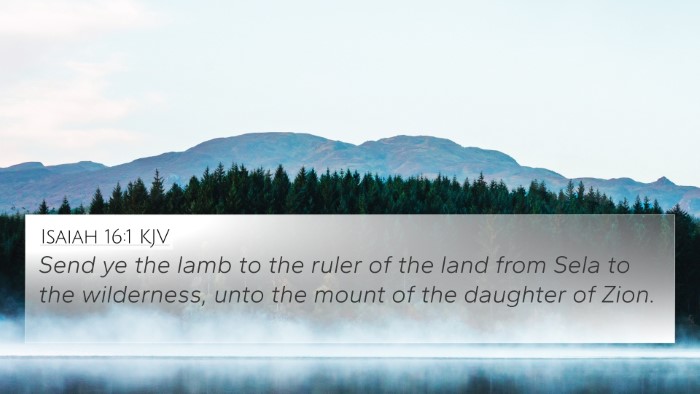Understanding 2 Kings 3:4
2 Kings 3:4 states: "And Mesha king of Moab was a sheepmaster, and rendered unto the king of Israel an hundred thousand lambs, and an hundred thousand rams, with the wool." This verse reflects the tribute paid by Mesha, the king of Moab, to Israel, a practice rooted in the socio-political context of ancient Israelite diplomacy and economics.
The analysis of this verse can be explored through both thematic connections and specific cross-references found throughout the Bible. Below, insights gathered from public domain commentaries, including those by Matthew Henry, Albert Barnes, and Adam Clarke, are summarized to enrich the understanding of this scripture.
Contextual Background
The tribute mentioned in this verse signifies the acknowledgment of Israelite power and influence over Moab. Mesha's tribute demonstrates the economic transactions that existed during that period, wherein nations would offer gifts to more powerful neighbors to ensure peace or to secure a favorable standing.
Thematic Insights
- Political Relations: Mesha’s tribute indicates the power dynamics between Israel and Moab, highlighting themes of submission and allegiance.
- Economics of Tribute: The offering of sheep and wool reflects the agricultural nature of both nations and underscores the importance of livestock in their economy.
- Religious Implications: In the biblical narrative, such tributes can also indicate appeasement to God, as the Israelites often perceived such acts as either blessings or signs of God’s favor or disfavor.
Commentary Summaries
Matthew Henry's Commentary
Matthew Henry emphasizes the significance of tribute as a symbol of the relations between nations. He notes that the tribute was substantial, thereby illustrating Mesha’s dependence on Israel. Furthermore, this verse exposes the spiritual status of the Moabites in contrast to the Israelites, who had a covenant relationship with Yahweh.
Albert Barnes' Notes
Albert Barnes highlights how this tribute not only reflects tribute payment but also serves as a type of bargaining power that Moab hoped to utilize to maintain peace. He underscores the idea that such payments were common in the ancient world and often depicted as a recognition of superiority.
Adam Clarke's Commentary
Adam Clarke elaborates on the economic factors of Mesha's tribute to Israel. He discusses how sheep were a crucial part of the agrarian economy at that time and the meaning of the numbers presented in this verse. Clarke also notes the implications of such a tribute in the context of obedience and rebellion between nations.
Cross-References
This verse has several significant cross-references that can further illuminate its meaning and context:
- 2 Samuel 8:2 - Discusses David's subjugation of Moab.
- Isaiah 15:1 - A prophetic declaration regarding Moab's judgment.
- Micah 6:5 - Reminds Israel of the story of Moab and God's actions.
- Jeremiah 48:1-10 - Pronouncements against Moab, encapsulating its fate.
- 1 Kings 11:1-7 - The historical backdrop of Israel's relationship with foreign nations.
- Numbers 24:17 - A prophecy regarding Moab's eventual downfall.
- 2 Kings 1:1 - References the political intricacies surrounding Moab during the reign of Ahaziah.
Analytical Reflection
The tribute of 100,000 lambs and rams is symbolic not only of Moab's economic dealings but also of the deep-rooted ties and tensions that characterized Israel's interactions with its neighbors. Understanding this single verse provides essential insights into the broader narrative of Israel’s history and prophetic literature.
Bible Verse Connections
In examining the connections between various scriptures, we see the patterns of obedience and defiance manifested throughout the history of Israel and its surrounding nations. Here are some additional connections that emerge:
- Exodus 23:31 - God's promise of land which influences Israel's geopolitical actions.
- Deuteronomy 2:9 - Refers to God's commands concerning Moab.
- Ezra 9:1 - Shows how the Israelites struggled with cultural influences from surrounding nations, including Moab.
Conclusion
2 Kings 3:4 serves as a microcosm of the larger biblical narrative concerning Israel’s relations with its neighbors. Utilizing tools for Bible cross-referencing and exploring connections between verses not only deepen our understanding but also enriches our spiritual insights. By engaging in cross-reference Bible study, one can uncover the interconnectedness of Scriptures, greatest themes, and profound teachings within the Bible.
Understanding the historical context of tribute systems, the significance of agricultural economics, and the implications of obedience in worship enhances our interpretation of not just 2 Kings 3:4 but the entire scriptural narrative.
